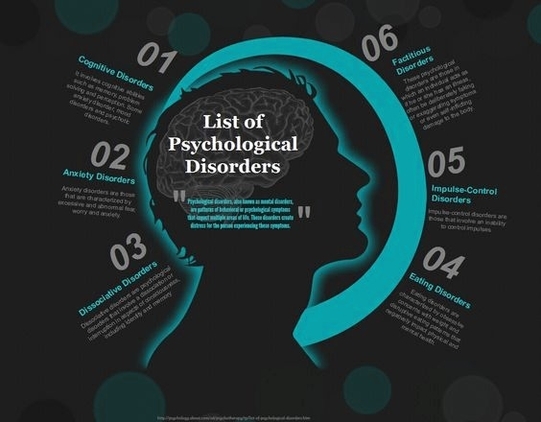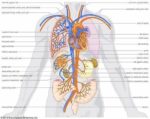Psychological disorders, also known as mental disorders, are patterns of behavioral or psychological symptoms that impact multiple areas of life. These disorders create distress for the person experiencing the symptoms. Here are some of the major categories of psychological disorders:
1. Anxiety Disorders: These are characterized by disproportionately high levels of fear, anxiety, and avoidance in response to certain objects or situations. Common types include agoraphobia, generalized anxiety disorder, panic disorder, separation anxiety disorder, specific phobias, postpartum anxiety, and social anxiety disorder.
2. Mood Disorders: These mental health conditions affect your mood. Depressive disorders involve sad, empty, or irritable moods along with physical and thought changes that affect your ability to function.
3. Substance Use Disorders: These involve the overuse or dependence on a drug or other substance leading to effects that are detrimental to the individual’s physical and mental health.
4. Schizophrenia and Other Psychotic Disorders: These disorders are characterized by distortions in thinking, perception, emotions, language, sense of self, and behavior. Common hallucinations include hearing voices.
5. Eating Disorders: These disorders involve preoccupation with food and shape weight that leads to an extreme disruption in eating behavior. Examples include anorexia nervosa, bulimia nervosa, and binge eating disorder.
6. Neurodevelopmental Disorders: These are typically diagnosed during infancy, childhood, or adolescence. They include intellectual development disorder, global developmental delay, and communication disorders.
7. Personality Disorders: These involve enduring patterns of behavior, cognition, and inner experience, exhibited across many contexts and deviating from those accepted by the individual’s culture.
8. Sleep Disorders: These involve disruption in the amount, quality, or timing of sleep, or in behaviors or physiological conditions associated with sleep.
9. Sexual Dysfunctions: These involve a change in the individual’s sexual response cycle or pain associated with sexual intercourse.
10. Dissociative Disorders: These involve disruptions or breakdowns of memory, awareness, identity, or perception.
11. Stress-related Disorders: These involve a maladaptive response to a stressful event or trauma.
It’s important to note that only an experienced mental health professional can make a diagnosis. Most mental health conditions are treatable, often through talk therapy (psychotherapy), medication, or both.



